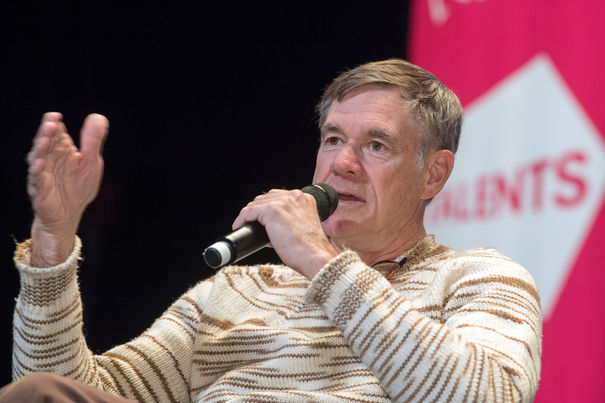Fewer Taboos, More Opportunities - An interview with Gus van Sant
By Lilla Puskas

He has some of Hollywood’s best-known titles under his belt, including GOOD WILL HUNTING and MILK, and also counts amongst the cult art-house film directors with MY OWN PRIVATE IDAHO, ELEPHANT and PARANOID PARK. After the Berlinale Talents master class “A Place Like Home: The Cinema of Gus Van Sant”, we sat down with the pioneer of North-American queer cinema to talk about career shifts and how cinematic taboos are changing.
Your early films have showed a taste for American avant-garde cinema. What was it that later turned you to doing more classical visual portrayal?
I kind of worked my way into less experimentation. I think it is because from time to time I choose other people’s screenplays and I am doing it as a job, sort of. Sometimes I do what they want, instead of what I want.
Both in your independent and studio films you tend to focus on people and social groups that are on the periphery of society. What do you find particularly interesting in these marginalised characters?
They are people finding ways to make friends or band together because they are kind of like-minded. These protagonists are usually outsiders partly because they don’t belong to whatever larger group there is. In my first three films, for sure, they are very far from the mainstream. Maybe I am trying to illuminate the outsiders and give them an identity.
There have always been cinematic taboos regarding sexual minorities. In your opinion, how have these changed in the last decades?
There is definitely a development in how intimate a film can be. I think there has been kind of a distance travelled from what let’s say was accepted in the 40s or 50s when it used to not even be allowed to show a kiss.
How do you see queer cinema today?
In the USA queer cinema has evolved just in my lifetime. When I first went to gay film festivals in Hollywood, there were films from Europe: Germany, Denmark, Holland and Sweden. So it has gone from all the way from there, as a part of a movement, until now when we have many different opportunities to tell stories. Today there is so much desire for content that did not exist long time ago when most of the gay filmmakers were working just barely or for the very low money.

